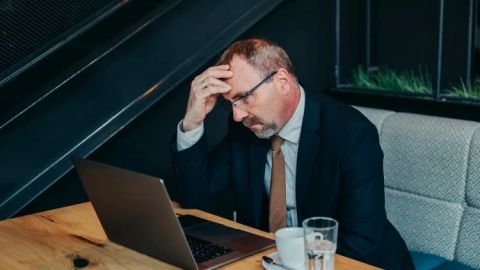OPINION: Poor, Older Black Americans Are an Afterthought in the COVID-19 Crisis

Credit: Adobe
(Read all of Next Avenue’s COVID-19 coverage geared toward keeping older generations informed, safe and prepared.)
Texas Lt. Gov. Dan Patrick recently said that he and other older Americans would be willing to risk death due to the coronavirus in order to protect the U.S. economy. What followed was a backlash by people warning that even the thought of sacrificing the elderly is unacceptable. Of even greater concern, though, is what this agenda would mean for poor, older black Americans — people like my 89-year-old grandmother — who already are an afterthought in this country and stand to be impacted the most by the pandemic.
America has always had a problem with those at the margins. Individuals with intersectional marginalized identities such as poor, black and older Americans are typically portrayed as draining America’s infrastructure. This compounded narrative is not only racist and classist, it pushes a common ageist rhetoric.
Exacerbated Injustices for Lower-Income, Older Black Americans
As a whole, the aging population faces daily injustices such as unfair hiring practices in the workplace and negative stereotypes in the media. For lower-income, older black Americans, these injustices are exacerbated to include lessened access to quality health care or local community resources.
We have typically pushed the larger aging population into spaces where they are often left to be forgotten. Health crises such as the one we’re living in now highlight that this disregard stands to disproportionately impact older adults who are poor, chronically ill and otherwise considered at the margins of our society.
Since the labor force of low-income workers is disproportionately black, we are also seeing more of the older, lower-income black population at risk of exposure to COVID-19.
It reveals that in times of crisis, the vulnerable are the most impacted — yet the least heard.
Black people in the United States already are at a higher risk for many illnesses and diseases than white Americans, according to the Centers for Disease Control and Prevention. Age and income only raise those numbers. And the incidence of chronic health conditions such as diabetes and heart disease is seen at a much higher rate among older, black Americans in lower-income areas than others.
Since the labor force of low-income workers is disproportionately black, we are also seeing more of the older, lower-income black population at risk of exposure to COVID-19.
Cities such as Albany, Ga. and New Orleans now have among the highest cases of COVID-19 per capita and in both, over 50% of the population is black and the poverty rate exceeds 25%.
Not only is there currently little in place to prevent or address this inevitable impact, this reality has not been a part of the mainstream conversation of what it means to save the U.S. economy.
What the COVID-19 Economic Debate Implies
What is the COVID-19 economic debate really saying about the bulk of Americans who’ll be detrimentally impacted as the virus continues to spread?
For one thing, it continues to push the rhetoric that older adults are disposable and defines them by their deficits and disparities.
For another, it reinforces what we have known for decades: that those at the margins are often not considered in the larger scale of who contributes to this country.
I’m hoping the health crisis we’re in has been a wake-up call to America, demonstrating that there are many people at the margins of society who’ve been unjustly deemed to take up space.
Words and actions by some public officials have essentially been suggesting that poor, older black Americans don’t deserve to be protected.
But we know many of them to be caregivers, mentors, matriarchs, patriarchs and community leaders.
Appreciating Our Black Elders
They are more than sick cases and incidence numbers. Our elders hold the wisdom of having lived through several other global health pandemics, wars, the civil rights movement and the Jim Crow era, as well as terrorism attacks such as 9/11. Many survived these while raising children and holding down backbreaking jobs.
In my current research, at the intersections of public health and design, I get to interact with black elders in a state of creativity and innovation. I have had the opportunity to engage with many who have kept their communities thriving for decades. They’ve seen this country through a unique lens of being thought of as less-than for their race and social class, and now because of their age.
They display a strong sense of resilience that we could learn from during the pandemic.
Instead of seeing them as a weak link in the economy, we need to advocate for marginalized groups who truly need support from our leadership. We need to look to our elders to learn how to pool resources and ways to lean into a stronger sense of community.
A Wake-Up Call for America?
I’m hoping the health crisis we’re in has been a wake-up call to America, demonstrating that there are many people at the margins of society who’ve been unjustly deemed to take up space. Many older adults at the margin face poverty, have less access to health care than others and are without the privilege to hold work-from-home jobs.
Local and national officials need to protect this population and disavow any intention of “sacrificing” our elders. While many communities have taken it into their own hands to devise mutual aid efforts to support our most vulnerable, we need mandated guidance from our political leaders to prioritize the health of those who have contributed so much to this country.
This story is part of our partnership with Next Avenue. Next Avenue is public media’s first and only national journalism service for America’s booming older population. Their daily content delivers vital ideas, context and perspectives on issues that matter most as we age.

























